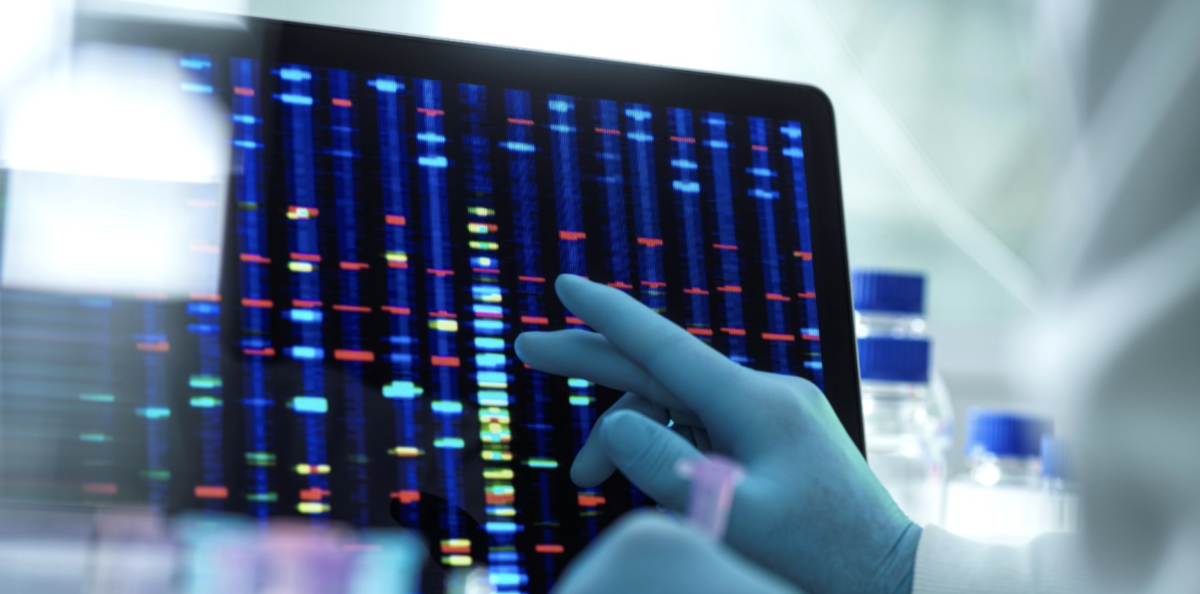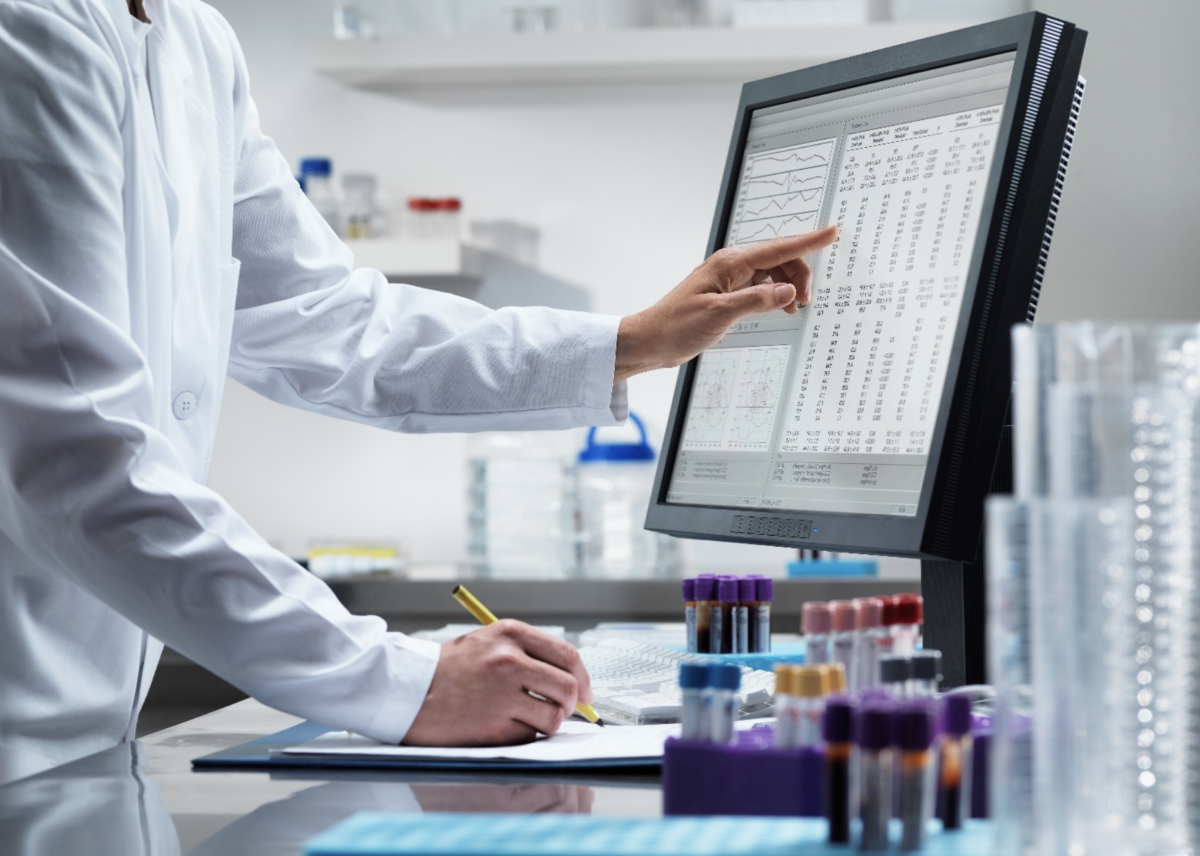People take supplements to improve or optimize their health. So what happens when you look at the label, and the ingredient list is filled with unrecognizable additives?

Bio-individuality is the concept that each of us has a unique set of genes and environmental factors that influence how we respond to food, exercise, and other determinants of health.
The relevance of bio-individuality to nutrition is that there’s no one-size-fits-all approach to eating or supplements. What works for one person may not work for another.
Everyone has a different genetic makeup, so it makes sense that an individualized approach to nutrition could lead to better health outcomes—this is what nutrigenomics is all about.
What is Nutrigenomics?
Nutrigenomics (also called nutritional genomics) studies how genes interact with nutrients and how this interaction affects our health. It’s personalized to you based on your unique genetic makeup.
The goal of nutrigenomics is to use genetic information to recommend the best diet and lifestyle for optimizing health. This science is still relatively new, but it’s growing rapidly, and there is already a wealth of information available on how different nutrients affect our genes
Nutrigenomics considers how the nutrients in our food or supplements may affect the expression of genes that oversee metabolic pathways—how we use nutrients from food or supplements—in the body. Nutrigenomics also examines how genes influence the absorption and metabolism of those nutrients.
Research has shown that genetics can affect health in many different ways, such as:
- Nutrient metabolism. The way our bodies metabolize (or break down) nutrients can be affected by our genes. For example, genetic variants can affect lipid metabolism, influencing cholesterol levels and heart health. Even whether or not someone responds well to a specific dietary pattern can be controlled by genes.
- Appetite. Genes can also affect appetite and how much we eat. People with certain variations in the expression of genes responsible for hunger and satiety hormones can influence eating behaviors and even food cravings.
- Weight management. Our genes can also affect our weight and whether we have difficulty maintaining a healthy weight.
- Insulin signaling. The way our body responds to insulin (a hormone that helps control blood sugar levels) can be affected by our genes. For example, people with a specific variation in the gene IRS1 may have an increased risk for blood sugar dysregulation.
Needless to say, nutrigenomics is a new and exciting area of research with the potential to revolutionize the way we approach nutrition. Understanding how genes interact with nutrients can help practitioners make more personalized recommendations for optimal health.

SNPs and Nutrigenomics
Single nucleotide polymorphisms (SNPs, pronounced “snips”) are the most common type of genetic variation. They are changes in a single DNA base (the building blocks of our genes) when one letter of the DNA sequence differs from the “normal” sequence. 1
Scientists have found more than 600 million SNPs in humans around the world. 1 While most SNPs don’t affect a person’s health, some can influence how someone metabolizes nutrients. For example, someone with a SNP in the gene that codes for Vitamin D receptors may not be able to efficiently use vitamin D.
Another example is weight loss. Different genes can affect how we metabolize macronutrients, translating to how we respond to diets for weight loss.
SNPs can even impact how physical activity affects body fat or metabolic rate, which helps explain why there’s so much variation between how people respond to diet patterns and exercise.
Genetic Testing and Nutrigenomics
Genetic testing allows consumers to use nutrigenomics to optimize health. Testing can look for SNPs that may affect how you respond to food and nutrients and use them to tailor diet and lifestyle recommendations.
While it’s exciting that there are many direct-to-consumer tests available, it’s important to work with a practitioner trained in nutrigenomics to interpret your results and make recommendations to support your health. Remember, not all genetic variants will impact your health, so a practitioner can help you sort through the information to find what is most relevant to you and what actually matters. 1
Research also suggests that knowing that a recommendation is personalized to you may increase motivation to follow it. Unlike a general, blanket approach—which we know doesn’t always work when it comes to long-term health changes—an individualized plan can give you more confidence that you are making the right choices for your body. Having a tailored plan can be helpful for the nutritional recommendations themselves and also increase your likelihood of successfully sticking with the plan.

Personalized Supplementation and Nutrigenomics
Once you have your genetic test results, nutritional supplements can be personalized based on your unique genetic makeup. Supplements can be tailored to support detoxification, immune response, and so many other aspects of health.
For example, someone with a SNP in the MTHFR gene may need a special form of folate. MTHFR (methylenetetrahydrofolate reductase) is an enzyme necessary for the methylation process, so having the MTHFR gene means that someone may have difficulty with methylation. MTHFR is needed to make enough active folate, a critical nutrient in this pathway.
Methylation is essential for so many biochemical reactions in the body, including the production of hormones, DNA, and neurotransmitters. It’s also needed for healthy energy production and nutrient metabolism.
If someone has the MTHFR gene, they may be unable to make enough active folate, so all these pathways are affected. But genetic testing can determine if this is a problem, and supplementing with a methylated form of folate can help.
Vitamin D status is influenced by genetic and environmental determinants. Similarly, someone unable to efficiently use vitamin D may need a higher dose than someone with a SNP reported to be associated with vitamin D-related traits. This SNP means that the person may need to supplement with more vitamin D to maintain adequate levels in the blood because they can’t absorb it as efficiently.
Nutrigenomics Could Be the Future of Nutrition
Nutrigenomics is the study of how genes and nutrition interact. It is a new and growing field, and research suggests that it has the potential to improve our understanding of how to optimize health on an individual level.
If you are interested in learning more about your nutrigenomic profile, work with a qualified practitioner who can help you interpret your results and make recommendations.
The future of nutrition is personalized, and nutrigenomics may be at the forefront of this exciting new field!
Caitlin Beale, MS, RDN is a registered dietitian and freelance health writer. She has a master’s degree in nutrition and over ten years of experience as a registered dietitian.
Available upon request.
Share:
Related Posts

Goodbye Pie Chart, Hello Phase 1 Sliders
Written by Allison Smith, ND | 2025 As we usher in a new era of DUTCH testing which leaves behind the concept of the three-way

Introducing the DUTCH Dozen
Written by Kelly Ruef, ND | 2025 Hormone testing can be complex, which is why Precision Analytical developed the DUTCH Dozen, an interpretive framework that

DUTCH Report Enhancements
Written by Hilary Miller, ND | 2025 Precision Analytical have released the newest version of the DUTCH Test. This is the report’s most significant update

Gallbladder Health 101: What It Does and How to Keep It Working Well
Written by Ashley Palmer & Pooja Mahtani | 2025 The gallbladder may not get much attention compared to the gut, but it plays a central

Can You Bring Vitamins on a Plane? How To Travel with Supplements
Written by Austin Ruff | 2024 Are you traveling for a work conference, an athletic competition, or a weekend getaway? Just because you’re leaving home

